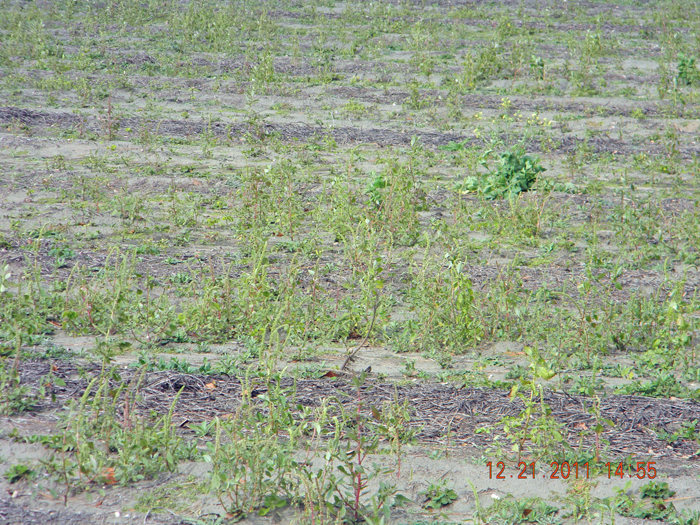
Many Florida cotton and peanut farmers have been fighting Palmer amaranth (pigweed) all season. With harvest is just around the corner, many farmers begin to relax their weed control efforts. Regrettably, you can’t give up on this horrible weed yet. With daytime temperatures still reaching the high 80’s or low 90’s with 12 hours of sunlight, Palmer amaranth will still germinate and produce seed. Therefore, giving up on Palmer right now can undo all the hard work that has been expended by allowing a late seed crop to develop.
After peanuts or cotton have been completely harvested, you can use 2,4-D or Weedmaster without as much concern for sensitive crops. These herbicides are inexpensive and highly effective on Palmer amaranth, even those that are resistant to glyphosate, Cadre, or both. One application of 2,4-D or Weedmaster will likely provide enough control that a later Palmer amaranth crop will not have time to develop before cool weather brings seed germination to an end.
Palmer amaranth is a serious problem for crop production, but seed longevity for this plant is actually quite short. A few years of proactive management at the end of the growing season can greatly reduce the impact of this weed. But, allowing multiple seed crops, especially those that develop late in the season when crop competition has been removed, can be particularly devastating the following season.
Source:ufl.edu